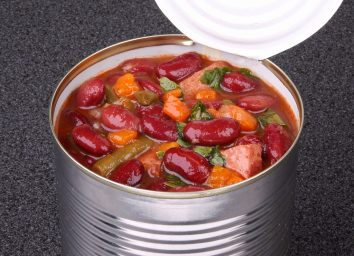Dangerous Side Effects of Eating Canned Soup, According to Science
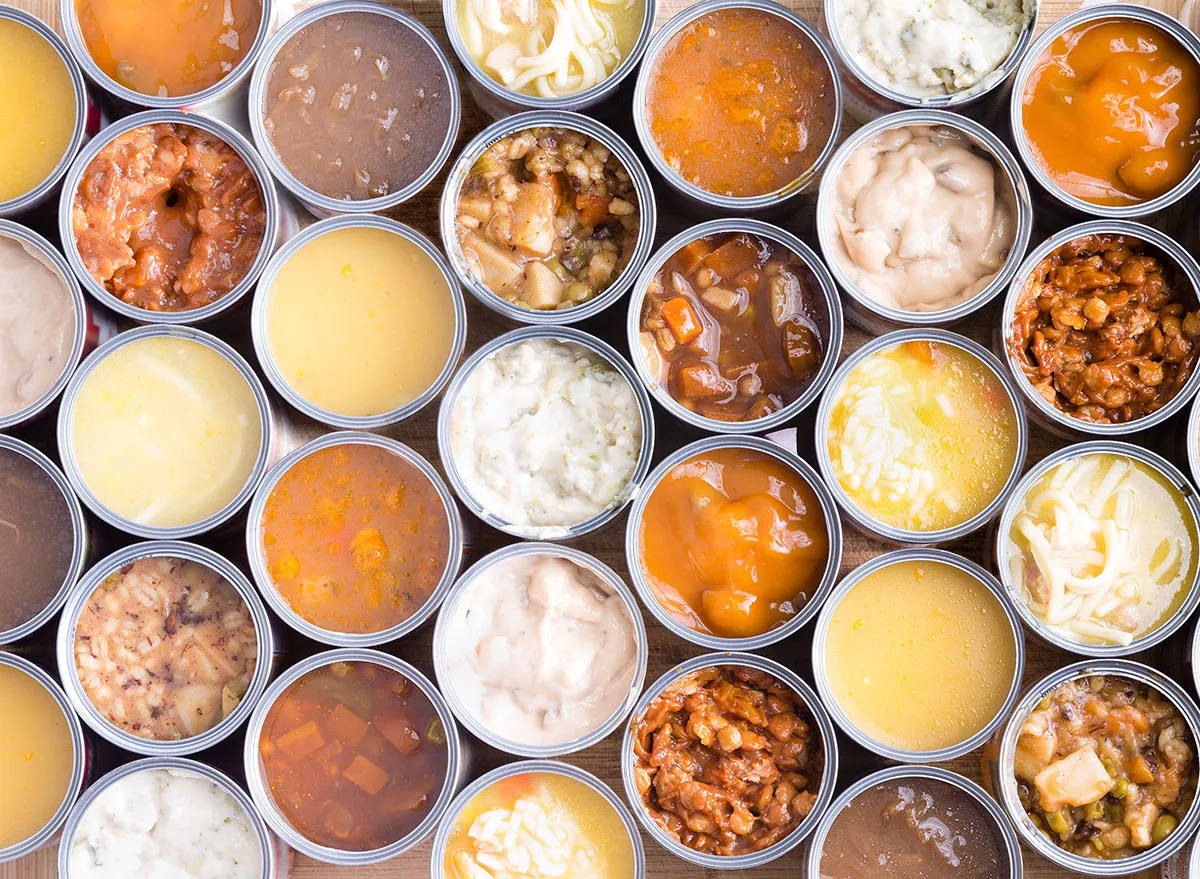
With much of the country still deep in the bowl of soup season, you probably have had your own pot of comfort simmering on the stove this past week. More than 36 million Americans used 8 or more cans of soup in 2020, according to Statista.com based on census data and Simmons National Consumer Survey.
Canned soup is super convenient, but it's also one of the most highly processed packaged foods you can eat. (Hint: make your own; here are our 20 Best Slow Cooker Soup Recipes.) Even though your canned soup may be loaded with carrots, celery, and lentils, many are also heavy with sodium, saturated fat and other stuff that's clearly not as healthy as a brothy, beany soup made at home. Here are some of the potential dangerous side effects of eating a lot of canned soup. Read on, and for more on healthy eating, don't miss 7 Healthiest Foods to Eat Right Now.
Bloating
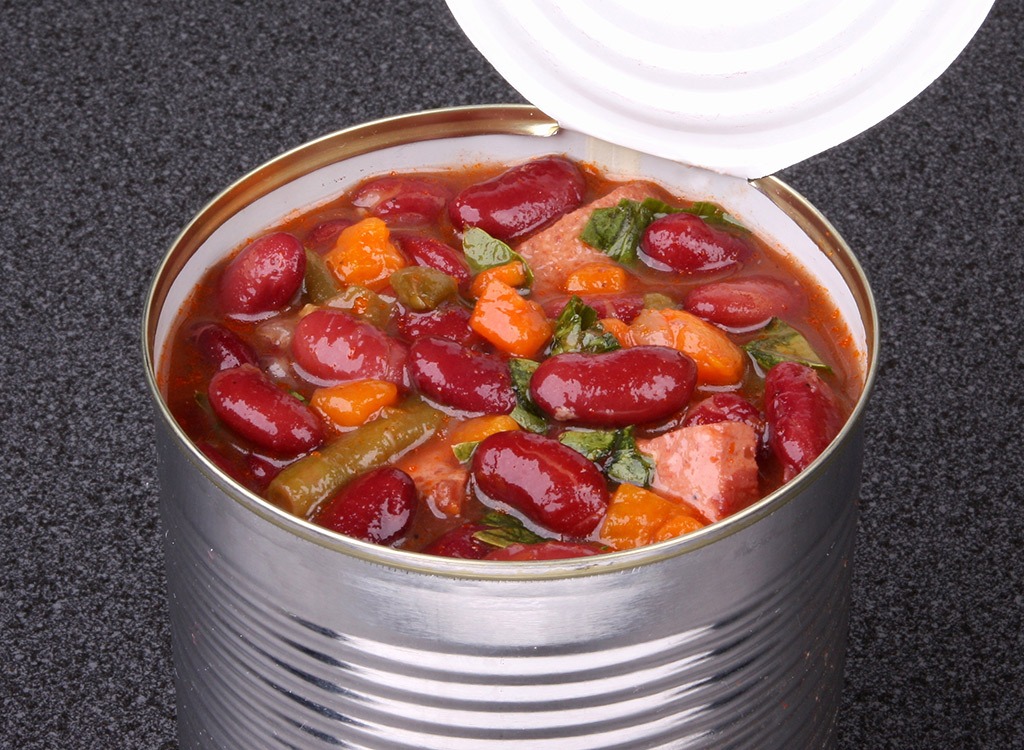
While not dangerous, per se, bloating can be pretty uncomfortable, and it's a common side effect of eating salty foods. Canned soups, as a category, are some of the saltiest foods, with the average serving of canned soup can containing around 600 to 700 milligrams of sodium. (And that's only for half a can!) While it's not clear just how sodium causes bloating, researchers believe that sodium's ability to cause water retention is the likely culprit. In a study in the American Journal of Gastroenterology that examined high- and low-sodium diets, researchers discovered that high salt intake increased the risk of bloating by about 27% compared with low-sodium diets.
Obesity
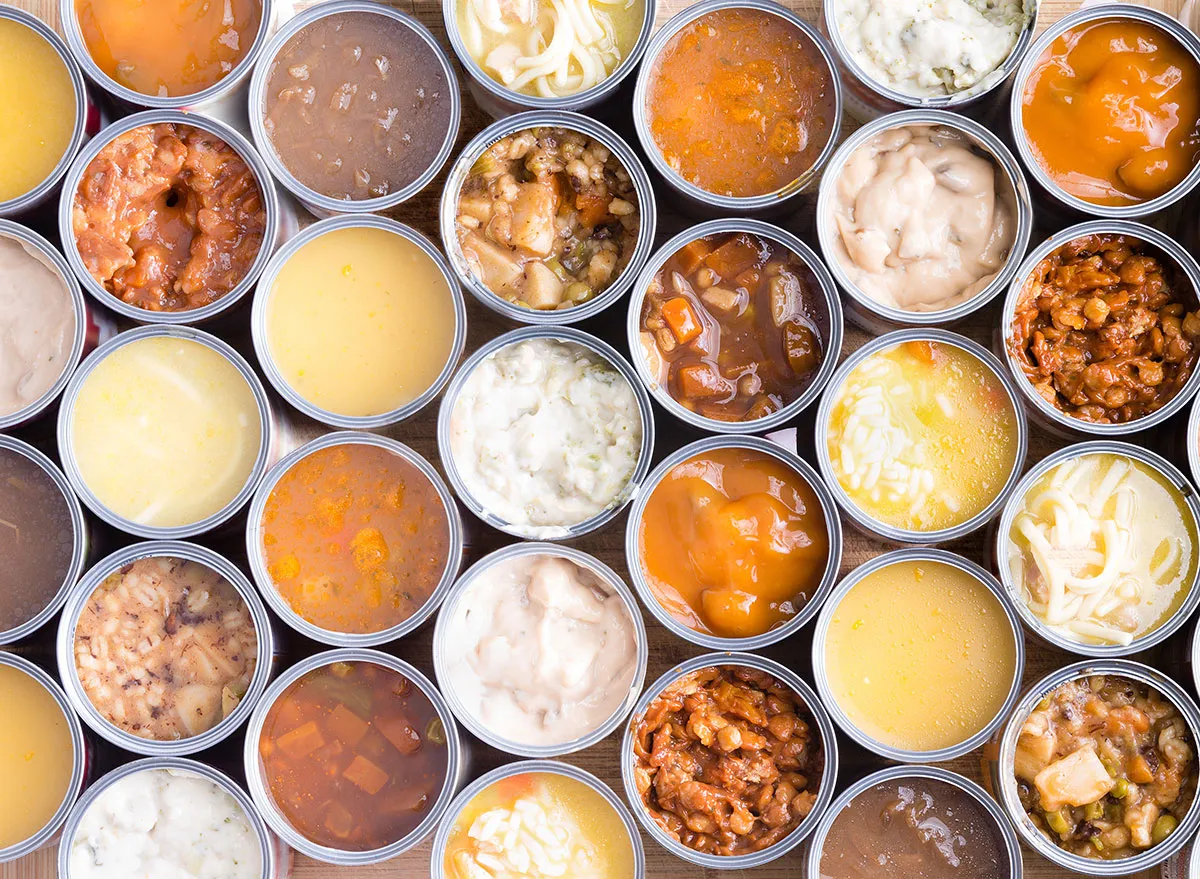
Anyone who has retained water after eating a salty meal knows that it can show up as extra pounds on the bathroom weight scale. But research suggests that diets high in sodium can result in more bodyweight located primarily in the most dangerous spot—around your middle. Studies have shown that a high sodium intake is associated with a risk of obesity through increased consumption of sugar-sweetened beverages. But other research suggests that eating salty foods may lead to weight gain even if it doesn't cause you to quench your thirst with 2-liter bottles of soda. A 2015 study in Hypertension analyzed a 4-day diet diary and urinary sodium levels in more than 1,000 children and adults and found high sodium diets to be a potential risk factor for obesity independent of energy intake. Researchers discovered that higher salt intake was associated with more than a 25% increase in risk of obesity and was related to higher body fat mass.
Hypertension
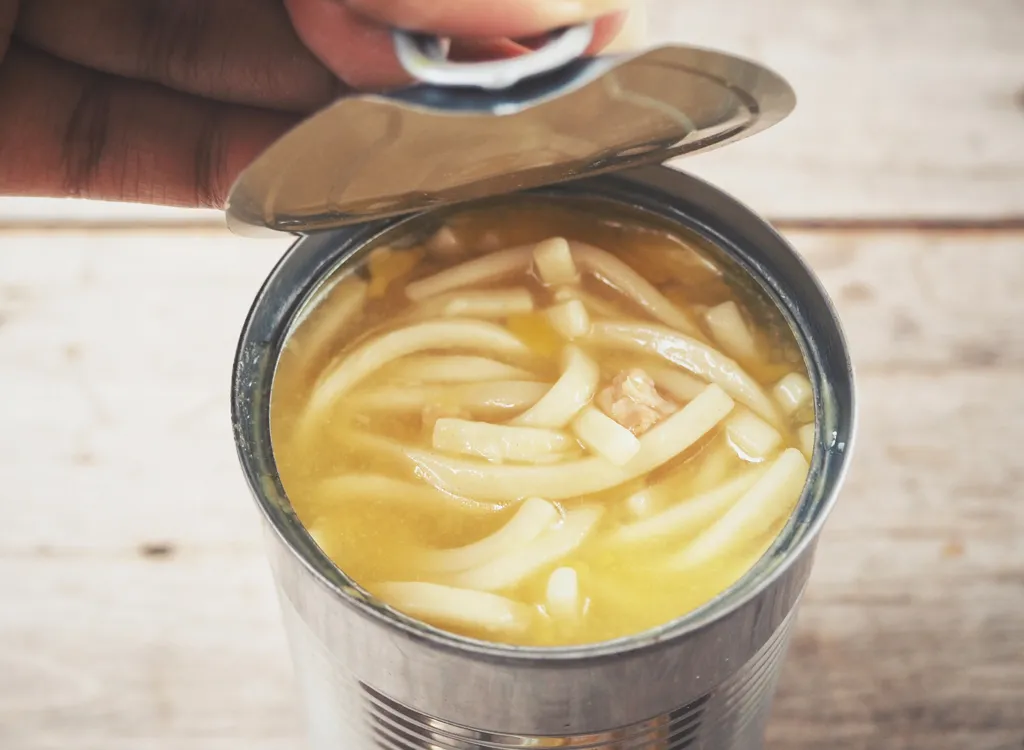
The average can of soup contains between 1,400 and 1,800 milligrams of sodium and some contain a good amount more. "Even if you stick to the serving size of 1/2 cup, you're getting 890 mg of salt," says registered dietitian nutritionist Jana Mowrer, RDN, owner of HealthWins Coaching and Consulting. "That's more than half your (recommended) sodium intake with a tiny half-cup serving!" The American Heart Association (AHA) recommends an ideal limit of 1,500 mg of sodium per day, especially for those with high blood pressure and 2,300 mg for most adults without hypertension. But the average American consumes about 3,600 mg per day. Hypertension, an element of a condition known as metabolic syndrome, is associated with a greater risk of heart attack, heart failure, stroke, kidney disease, vision loss and sexual dysfunction, according to the AHA. While there is debate about the effects of this essential mineral on health and how much salt intake should be reduced, many studies have demonstrated a link between high sodium diets, urinary secretion of sodium, and hypertension, including a large multicenter study involving more than 100,000 adults from 18 countries published in The New England Journal of Medicine in 2014.
To reduce the impact of all this sodium from canned soups, says Mowrer, "pair your soup with a fresh salad or piece of fruit, which contains potassium to help your body flush the salt." And stock up on these 14 Best Low-Sodium Canned Soups, Approved by Dietitians.
Weight gain and heart disease risk factors
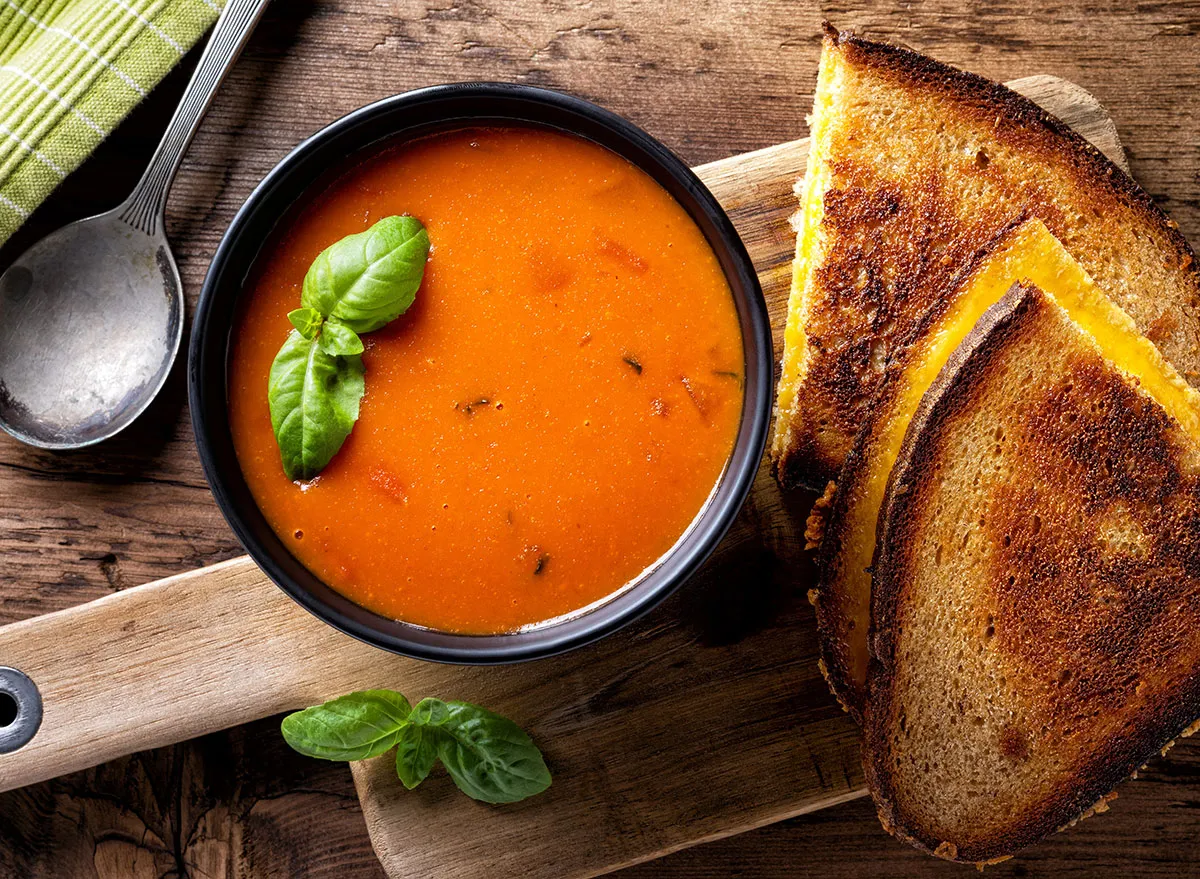
Some canned soups, especially "chowders" and "bisques," are high in calories and saturated fat, which can contribute to weight gain and elevate heart disease risk factors. For example, a typical canned chowder contains 100 calories, 9.5 grams of fat, 3 grams saturated fat, and 728 milligrams of sodium per serving. But remember that serving is just 2/3 of a cup, not the entire can, which is two and a half servings. So, count calorie, fat, and sodium numbers accordingly. While the debate over the connection between saturated fats and cardiovascular disease continues, a number of studies have shown that diets high in saturated fat can increase LDL (bad) cholesterol, especially a component of LDL, the protein ApoB, which is strongly predictive of coronary heart disease risk. Mowrer recommends keeping cream-based soups to a minimum due to their fat content, limiting total fats to under 30% of total daily intake. "I coach based on the 80/20 rule," says the Freso-based certified diabetes educator: "80% of your food should be whole nutritious, minimally processed foods with the remaining 20% consisting of the "fun" foods that we enjoy and provide us with additional benefits outside of health, such as making us feel cozy the way canned soups can do."
Disrupted endocrine system
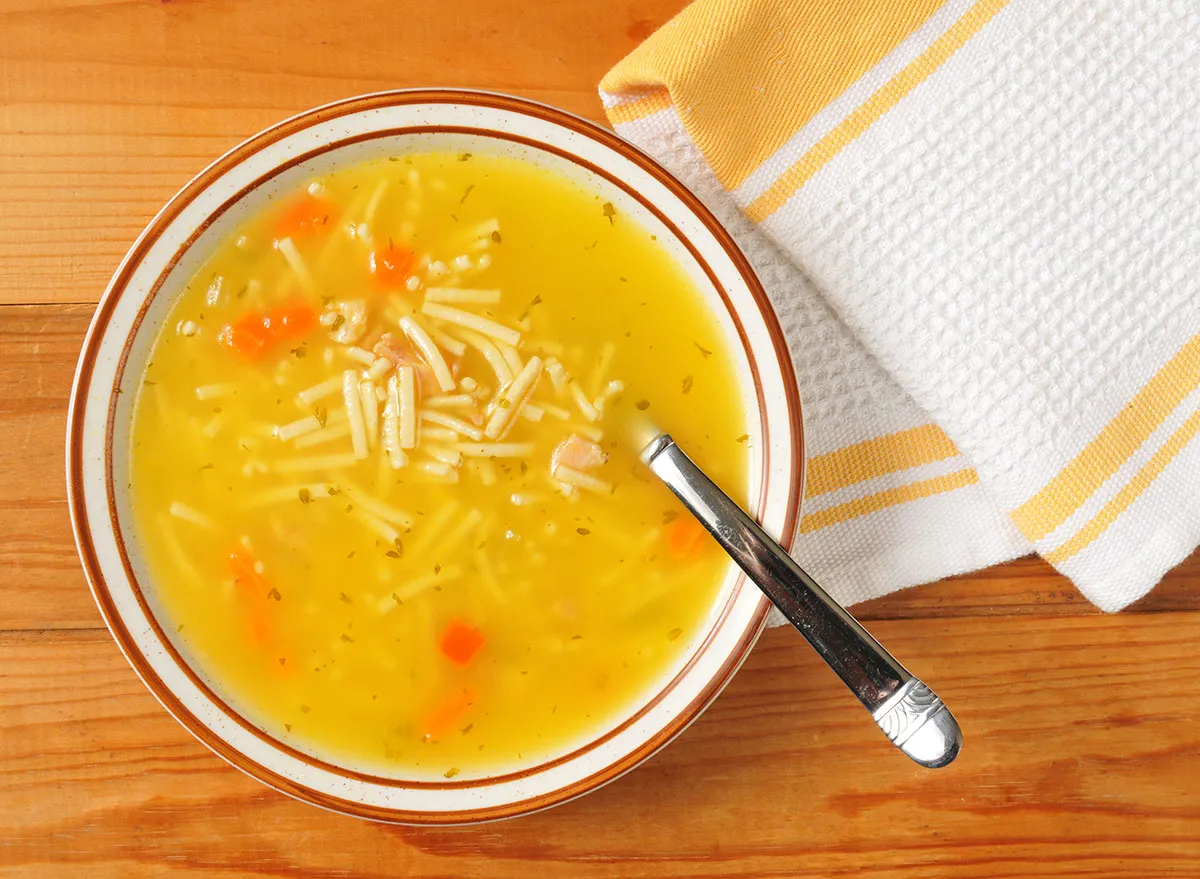
Many canned soups contain sodium phosphate, an additive made of sodium and phosphate that's used as a preservative and flavor enhancer. Although phosphates are necessary for our diets, the inorganic phosphates that are added to canned foods have been disrupted endocrine regulation, and ultimately result in tissue damage and the development of cardiovascular disease, renal impairment, and bone loss, according to an Advances in Nutrition review. Avoid the additives and try these 31 Best Healthy Instant Pot Soup Recipes for Weight Loss instead.
